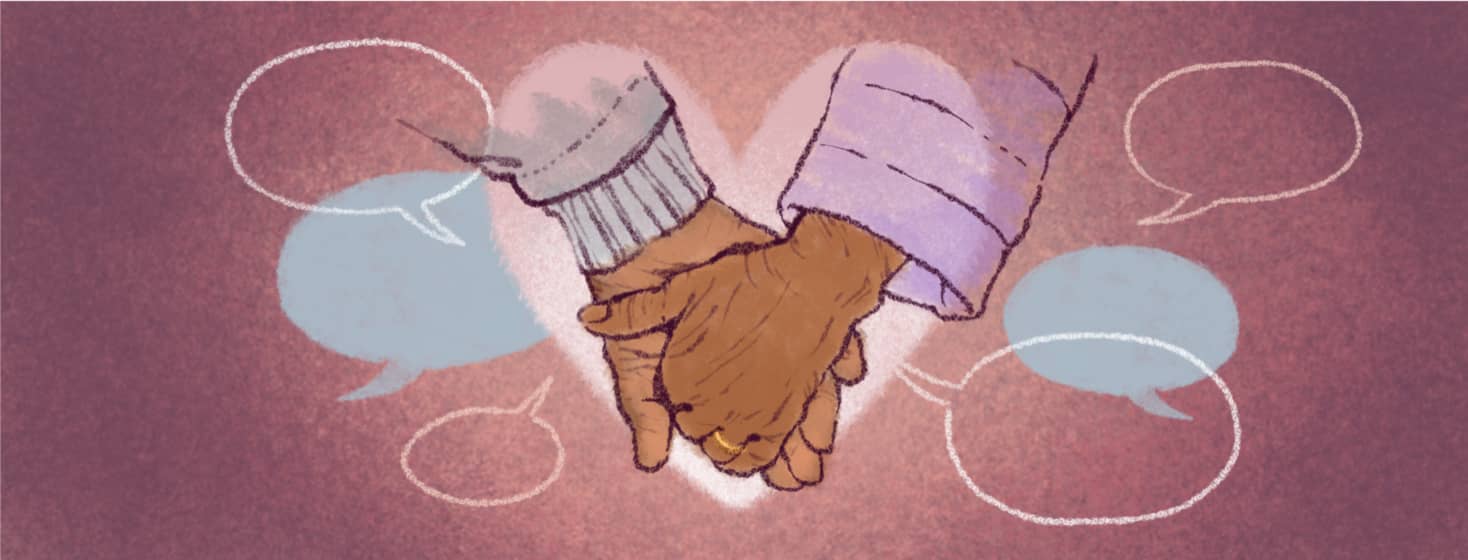"Your Family Gets It": Learning, Advocacy, and Support
We sit at the table in my grandma's supportive living floor dining room, coloring pictures of a church. Since she moved in, I wanted to come one evening to chat, color, and meet the other 11 people who live on her floor. However, by the time we got from her room to the dining room, the first table was filled with residents, so the 3 of us sat down at the second.
Conversations can be a challenge. My mom and I pressed to continue to engage my grandma as we all colored. When the staff member working the evening shift sat down with us to color, she was absolutely lovely, and I was excited to get to know her a bit more.
Of course, as it goes, things went well until they didn't... Which led to a lovely conversation.
Support through it all
As one would expect, I've heard many of the staff are very talkative, though one is quieter. I've seen the staff member who sat down with us expertly handle a situation when my grandma didn't want us to leave, and my family has had many great experiences with the staff on the phone as well. They are incredibly knowledgeable about Alzheimer's, strategies, and, most importantly, giving residents the support and the autonomy they deserve.
Our new tablemate and I began talking about coloring supplies, the ones in front of us and the ones we have at home. I noted my grandma has some good pencil crayons (yes, that's a Canadianism!) in her room since the quality of our provided supplies was a little lackluster, and with hope maybe staff would nudge my grandma to color on her sometime in the future.
Through the conversation, my mom and I tried to draw my grandma into the conversation, but as things get with several people involved, it wasn't working as well as it could. Suddenly my grandma stood up and asked my mom to take her back to her room.
I hung back in the dining room. Not sure if it would be better or worse if I went along, I texted my mom to let me know when I should come and said the same aloud to the staff member still sitting with me. "She may be mad at me for not going, or she might've been mad at me for going, so I'm just going to hang back," I continued.
"Your family gets it": Learning and advocacy
"Your family gets it," she said to me. "I've worked with a lot of families. They're all different in how much they understand, and your family, for the most part, gets it."
"We've learned a lot," I said, "We had to. You can't advocate for someone if you don't have a good understanding of what's going on."
This is the biggest lesson I've learned in my own life with chronic illness and learning disabilities. As much as I can, I have to learn about and understand what I'm dealing with to get the best possible care. This is, of course, no different. I've on occasion had to bring my family along to "school" on health system navigation or personal advocacy.
We chatted a bit more about how my grandma has settled in, the sundowning, and some other things that have come up, including the challenge we've had on both sides of getting my grandma to realize the staff are there to provide support and yes she should ask them for what she needs.
Usually, I'm 'just the granddaughter,' not demeaning, but in a way that acknowledges I'm not part of the decision-making. It was nice to be recognized as another partner in the journey: the staff are not just there for the resident — they're there for all of us as we work together to provide support.
Finding balance
Like meal preparation, assisted living, and home care before it, moving to supportive housing primarily ensures my grandma has the support she needs through this stage of her Alzheimer's.
And for the rest of us, giving us the peace of mind that she is safe and cared for while we continue to do all the things important to us, without having to put something on hold for the "just in case" situations. It gives my grandma more freedom from us and more people to be in her support network. All of the above are wins as much as they can be and depending on the day! But also a way of finding balance for all of us.
Yes, our family gets it. We are grateful my grandma is in the care of people who get it, too, and can ride this journey out with us.

Join the conversation